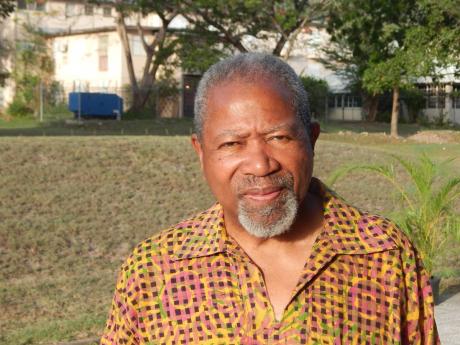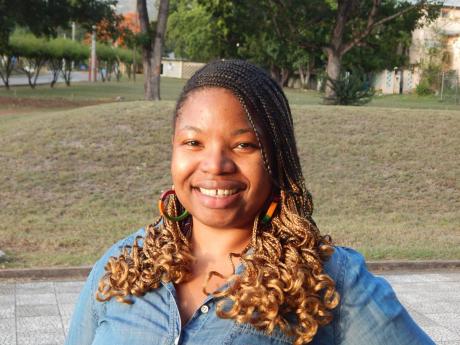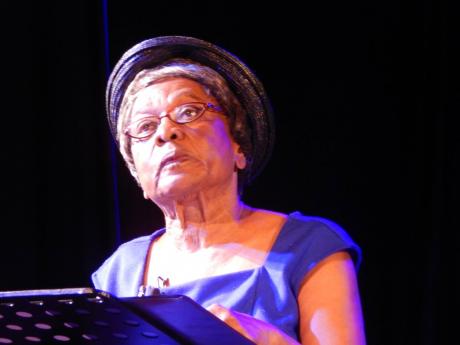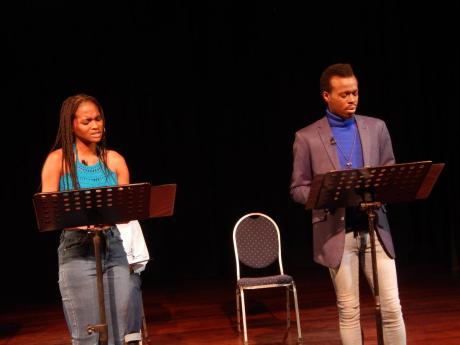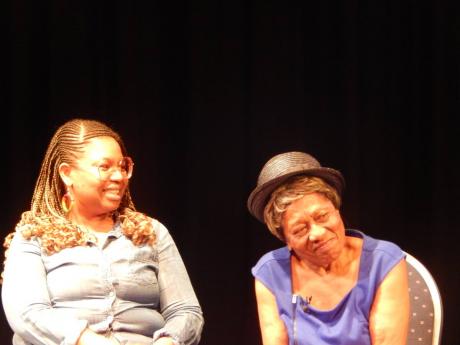‘Bar Girl of Jamaica’ reading provides feedback for production
Although Robert Johnson Jr is an experienced playwright, with 15 plays produced in the United States and Kenya, he is treating his current play with extra special care. And it is taking him longer than usual to complete.
He has been working on Bar Girl of Jamaica for some five years now, and it is not scheduled to be staged commercially until autumn of 2023. It will be produced by Akiba Abaka Arts, a production house headed by a Jamaican.
For now, Johnson continues the research he had been conducting before the script had a first reading in Treasure Beach, St Elizabeth, where the play is set. That reading was at Fisherman’s Bar and Restaurant in March and was followed by a second reading at Harriet Tubman House, Boston, Massachusetts, in December of 2018.
The latest reading was held on Sunday at the Sir Philip Sherlock Centre for the Creative Arts (PSCCA), Mona. The readers, all experienced actors, delivered the dialogue with feeling, thereby injecting quite a bit of verisimilitude into the reading. As the characters all have interesting histories and objectives, the reading proved highly entertaining to the audience.
Still, the director, Akiba Abaka, might have chosen to push the actors a step further than just reading their scripts at lecterns. Had she had them move realistically around the stage, it might have been even more entertaining.
At least some of the audience would have been familiar with that more sophisticated stage reading as for more than a decade, starting about 1990, The Company Limited (TCL) produced monthly play readings in various Kingston theatres. The no-admission-fee ‘Keeping Company’ series held on Sunday mornings was a post-church staple for dozens of theatre aficionados.
Abaka and Johnson might have heard about the series, for Abaka is Jamaica-born, and Johnson is a frequent visitor to the island. He goes to Treasure Beach, where he has a house. He is, incidentally, also a novelist, an educator (emeritus), an attorney-at-law, a photographer, and an internationally known speaker.
Abaka is similarly multitalented. She told me that when she left Jamaica at nine, she had already developed a love of the arts. It got strengthened in the United States. Aside from being a director, she is also a playwright, producer, actress, and educator. For more than 20 years, she has brought theatre to diverse communities in Greater Boston.
Her biography states: “As founder and artistic director of the former Up You Mighty Race Company [now Akiba Abaka Arts], she produced professional performances and community-engagement programming dedicated to the research, preservation, and advancement of African American theatrical forms.”
Also a creative producer at ArtsEmerson, the presenting and producing theatre at Emerson College, she has received numerous awards for her work in theatre and her social engagement.
Sunday’s production’s team of 18 persons included several experienced Jamaican theatre practitioners. For example, actor and singer Melbourne Douglas was the sound designer-composer, and the PSCCA’s technical director, Nadia Roxburgh, was both dramaturg and lighting designer.
The storyline, which needs fleshing out and structuring into a coherent beginning, middle, and end, belongs mainly to the bar girl of the title, Caroline (played by Quera South). Through loosely connected conversations, we learn Caroline’s backstory: raped and made pregnant when she was 14, the now 20-year-old escaped from further abuse in her home in May Pen and went to a district called Flagaman in St Elizabeth, where she set up a bar. She regularly returns to May Pen to see her daughter.
There are three other characters, not counting Joel Miller, who reads the stage directions. They are Wilford (Michael Forrest), a retired fisherman, who wants to date Caroline; Minister Hazel, who wants to get her into the church; and Christopher (Desmond Dennis), a university student, who wants a lasting relationship with her. He informs his UK-based parents about the relationship, and we hear that his mother disapproves of it while his father offers to assist Caroline with money.
A lot of background information about the characters comes out in the dialogue, information that the playwright needs to connect causally. Topics discussed include the speaking of patois, the power of the Church, man-woman relationships, the importance of education, class and racial prejudice, and reparation for slavery.
In a discussion segment after the reading, members of the cast and the audience gave their opinions of the characters and the possible development of the play. Presumably, the playwright took notes.
All involved with the reading will doubtless hear where the play goes from here. It has the potential to be a major Jamaican play.

